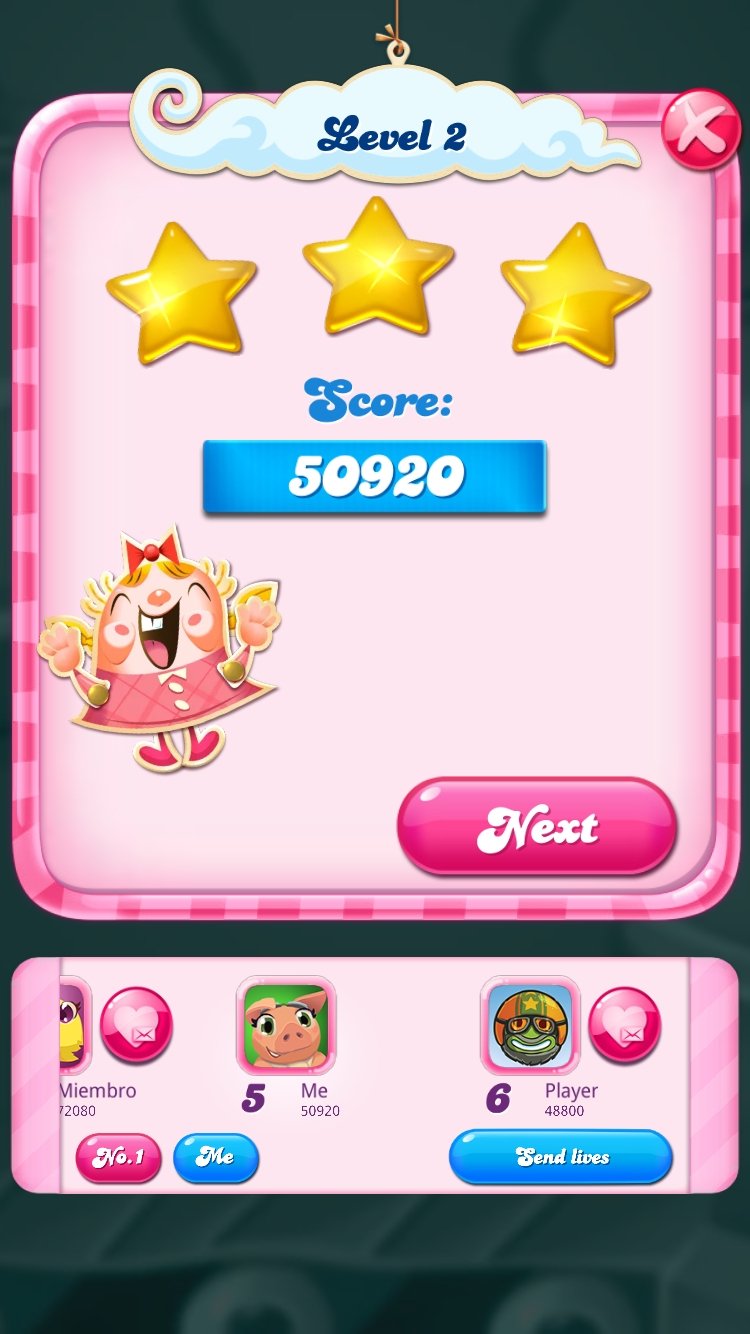

“Shitloads of money was put into Candy Crush’s marketing,” he says, referring to its early years. In order to maintain the market-leading position of Candy Crush Saga, King is committing even further to the age-old investment strategy of “speculate to accumulate.” According to Rose, this has always been the company’s approach, just like its mobile giant rivals, Supercell and Zynga (who have been acquired by Chinese multinational Tencent and Grand Theft Auto publisher, Take-Two, respectively, the latter for $12.7 billion). If they’re anxious, it can help them to relieve stress.” Still, we can’t help but raise an eyebrow when we see one of the new tracks is called “Candy Coma”. “We want to put them in a safe environment so that they can switch off. “We looked at the relaxation element,” Tate says. The new fully-orchestrated soundtrack spans a luxurious 30 minutes opposed to the endlessly looping three of the original, and hones in on the game's perceived chill-out qualities. Foremost amongst these is an entirely new score composed by the game’s audio lead, Sebastian Aav, overseen by King’s director of audio Vanesa Tate. By comparing how players react to such changes, it’s able to fine-tune the game so that it appeals to as broad an audience as possible, what Green calls the “mass, mass, mass mainstream.”įor this reason, you might imagine Green and his colleagues are nervous about the slew of updates arriving for the tenth anniversary. Unlike a blockbuster console game such as God of War Ragnarök which is tested behind closed doors with a limited number of players, King is able to work with much larger datasets, testing forthcoming events, improved levels, or entirely new features by rolling out updates to those already playing the game. This is common within gaming but the sheer scale at which King operates for Candy Crush Saga – the game commands over 200 million monthly active users – sets it apart from the competition. As King’s senior vice president, Alex Dale, told a 2019 UK commons committee investigating gaming addiction, the company gathers vast amounts of data on how its players interact with the game, applying such findings to its design. Put simply, King’s iterative, player-centric approach to design is a big reason why the treat-smashing game still feels so good. Rather than viewing Candy Crush Saga as habit-forming, Green is committed to giving players a “bite-sized experience that’s fun.” He says one of the ways this is achieved is by paying “a lot of attention to how players respond to the experience.” “On a daily basis, it's a tiny proportion of people who spend any money,” he says. It's more like, ‘What do you do with it?’ Ten years ago, the chat was, ‘We know one per cent of players are going to pay money for this: How much do we get out of them?’ A lot of the time, the answer was that they were trying to get tens of thousands out of them.”Īs you might expect from the leader of a team whose game is celebrating its ten-year anniversary, Green is reluctant to engage directly with such criticisms. “When Pokémon comes out next week, it will be addictive. “Games in general have been built to be addictive because a lot of the focus now is on retaining users,” he says. It’s not Candy Crush Saga’s “ habit-forming” gameplay that Mike Rose, former senior editor at Game Developer and founder of publisher No More Robots, takes issue with, but the way it’s paired with this free-to-play monetisation strategy. In 2015, for example, King raked in $2 billion in revenue across all of its games, all of that money coming from only two per cent of its total players. Exasperated, you're more likely to splurge a couple of quid on hearts to plug yourself back into its “ machine zone.” While it’s the case that most people don’t overspend, a small percentage, known within the industry as “ whales,” are what have traditionally made these kinds of games financially viable, and, in a case like Candy Crush Saga, monstrously lucrative. At this moment, you’ll probably use up all five of your allotted lives. Like an '80s Pac-Man arcade machine, the game profits from the idea of “one more turn.” It lulls you into a trance with a run of easy levels before delivering one of nightmarish difficulty.

Hon is alluding to Candy Crush Saga’s secret sauce, both the reason King was snapped up by Activision Blizzard for $5.9 billion in 2016 and why it has faced criticism over its ethics.


 0 kommentar(er)
0 kommentar(er)
